It's time for schoolchildren: who and why is going to teach children in Donbass
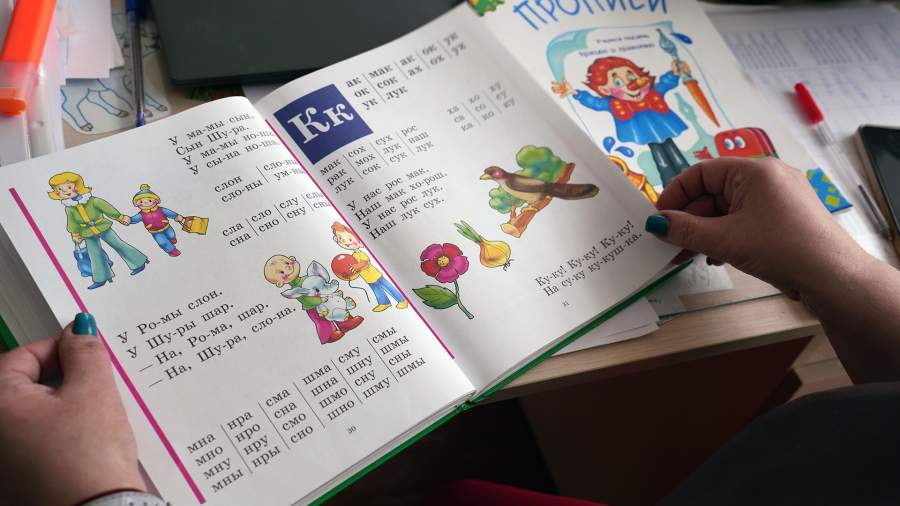
In the Donetsk People's Republic, after the last calls have died down, participants in the Zemsky Uchitel state program are preparing for summer holidays and summing up the results of the school year. Last year, the first four teachers from different regions of Russia arrived in the DPR. Conditions — teaching in a village or small village for 5 years, as compensation for his asceticism — a one-time payment of 1 million rubles (if the teacher breaks the contract, he must return the money, this year the amount has increased to 2 million). A special correspondent of Izvestia met with the participants of the program and found out what invited them to the troubled region.
Together with my daughter
In the village of Dmitrievka, near Volnovakha, there are slightly less than 1 thousand people. There are 72 children in the local school. There are naturally not enough staff (especially considering the sharp outflow of the population after the start of the free school), for example, the chemistry and biology teacher's rates are not closed next year, and it is unclear where and how to find them. But the primary school teacher is fine, last year Oksana Gennadyevna Bulatova, who moved to the DPR under the "zemstvo" program from St. Petersburg, took this vacancy. She has 27 years of experience behind her. And hundreds of pupils, with many of whom she still maintains cordial relations.
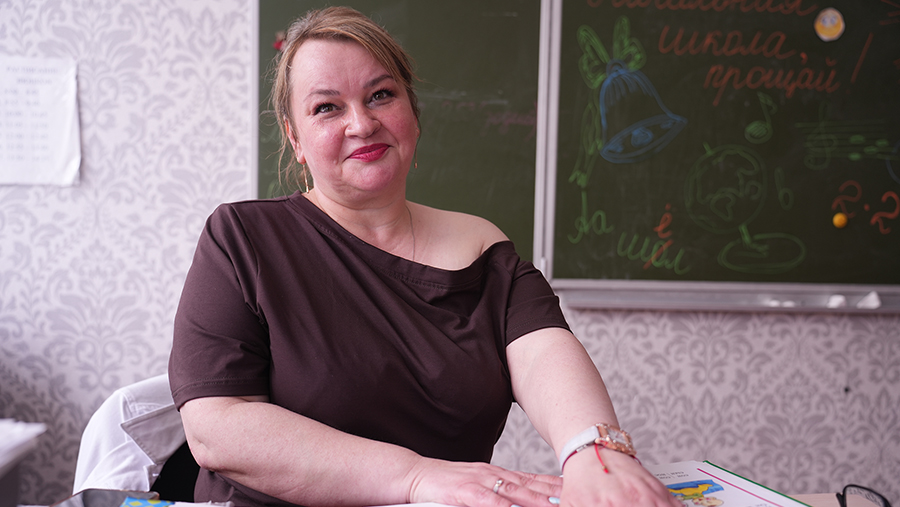
There are several reasons why she (and other teachers of the zemstvo program) decided to change from a prosperous city to a village in the special operation zone, but the key one is indifference to the fate of Donbass, a professional approach here is closely intertwined with personal and emotional, it is probably impossible otherwise.
— A man can sign up as a volunteer and go to war. And the woman? — says my interlocutor. — At first, I came to the DPR as a volunteer. Last year I decided to move here altogether.
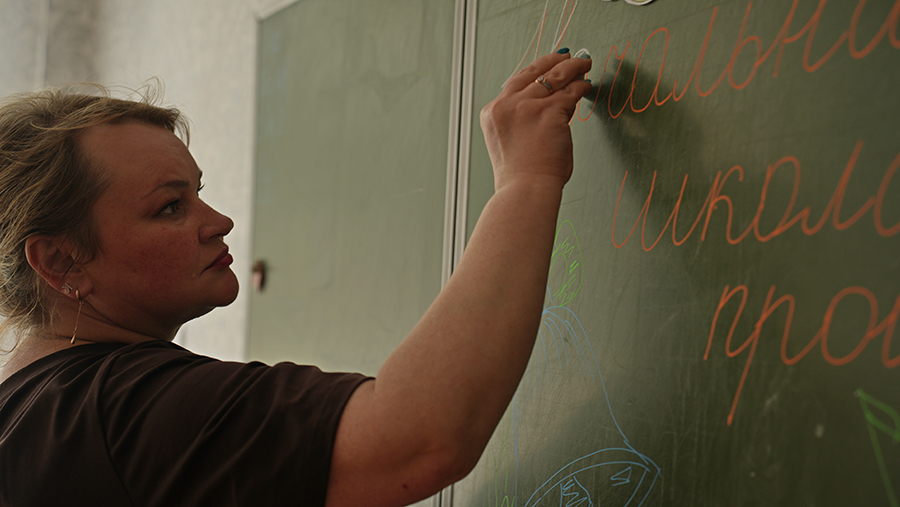
Oksana Bulatova is from the Pskov region. She worked as the head of a village kindergarten for 7 years. She moved with her military husband to the city of Krymsk, where she worked as an educator. After the flood of 2012, they returned to the Pskov region. Family life began to crack, and soon Oksana was left alone with two daughters. To raise them, she moved to St. Petersburg, where she got a job at a school. She met a man whom, according to her, "she may have been looking for all her life," having found happiness and a second youth in her mature years — just like in the movie "Moscow does not believe in tears." She got married again. In 2023, her husband died due to illness.…
"I do not know how I would have survived this grief," the woman recalls. — But I met a man who helped me pull myself together. I was sitting at the Moscow railway station in St. Petersburg, all in black, waiting for friends. Meanwhile, a group of military personnel was going to the SVO zone. One of them noticed me — he turned out to be the tank commander. He realized that I was very ill, came over, squeezed my hand and said, "Everything will be fine." And I gave him the icon from my chest. After that, he supported me in correspondence and, in fact, brought me back to life. After a while, I took courses in tactical medicine and began helping the wounded in the hospital. She began to travel to the DPR. Now, living in Dmitrievka, I continue to visit the wounded in my free time.
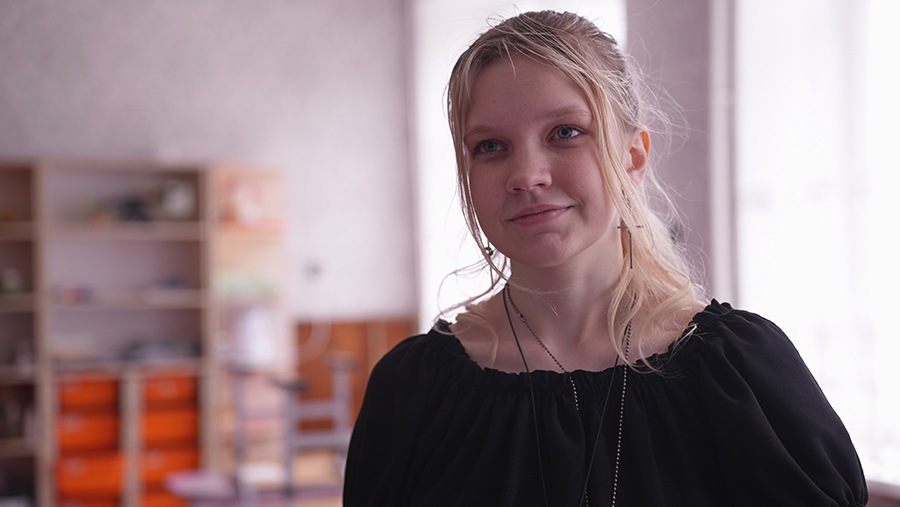
Her youngest daughter, 22—year-old Polina, a former student of the St. Petersburg journalism faculty, also moved to Donetsk. The girl works as a military officer. And he often visits his mother in Dmitrievka, they are close again, as if they had never parted. Oksana Gennadievna has plans for the coming weeks to work with the children in addition, to tighten them up, to fill in the gaps in knowledge. And then — to go to Kursk as a volunteer. Together with my daughter.
For the first time so far and for so long
The village of Starobeshevo is the center of the ancestral residence of the Greeks. It is located in the steppes in the center of the DPR. In a one-story old house (according to legend, Makhnovists stayed in it during the Civil War) Lyudmila Nikolaevna Leus, a history teacher from the Saratov region, lives here with a local grandmother.
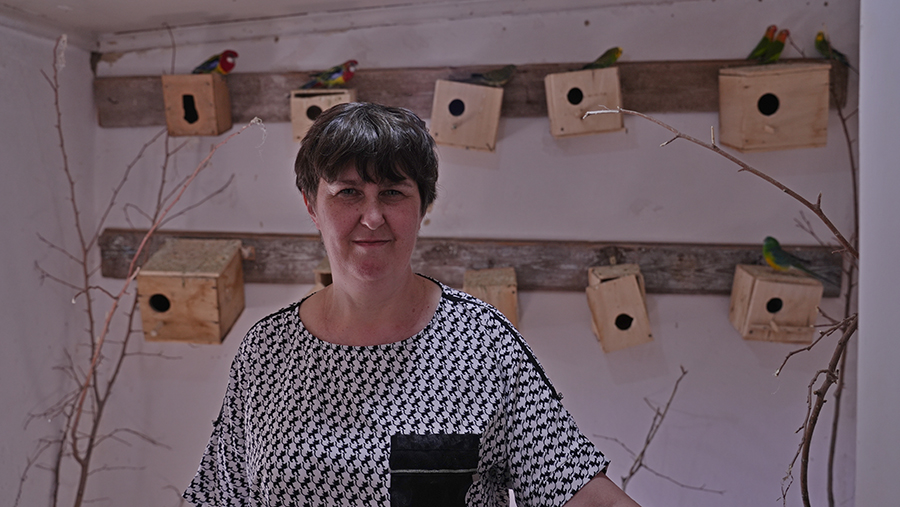
There are Greek ornaments on the facade of their hut. There is a well by the porch. There is a summer kitchen in the courtyard. There are flowers in the garden. Cats are napping on the benches. Goats are bleating in the pen. In one of the rooms with poles and bird houses, 20 parrots are chirping, which you will not get bored with (the pride of the old lady hostess). Lyudmila Nikolaevna has a lot of books in her room, including on the history of the Starobeshevsky district, which has become her home for the coming years.
She didn't get into the profession right away. She graduated from Saratov Pedagogical University in the early 90s. But due to instability in the country and delays in salaries for state employees, she devoted several years to commerce. In the 2000s, I went to work in my specialty in my native Rtishchevo, and immediately felt like I belonged there. Perhaps family traditions also had an effect: Lyudmila's mother and grandmother were also teachers.
After the start of her career, she worked with like-minded people to collect humanitarian supplies for the fighters. In 2024, she decided, in her words, "to get into service on her own."
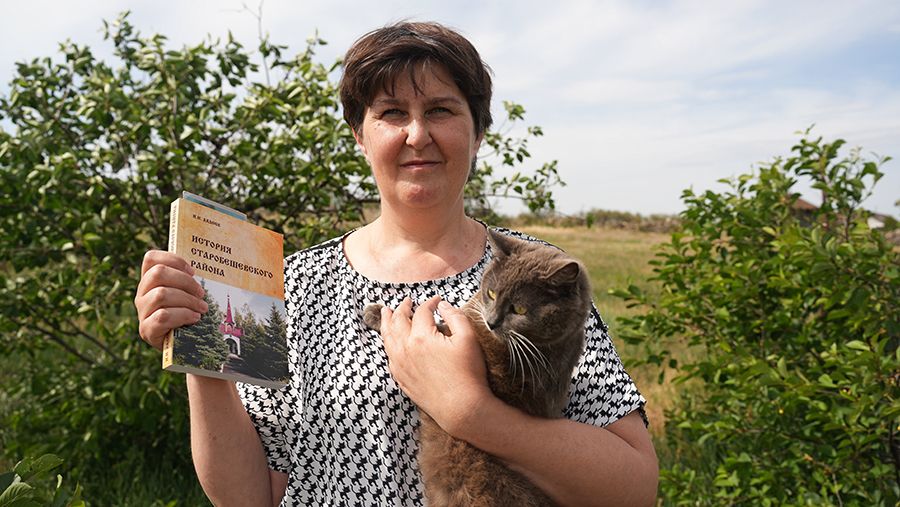
— What can I do? — Lyudmila Nikolaevna shares. — To teach. This includes talking about what is happening today from the point of view of science, documents, and historical cause-and-effect relationships. The school I got a job at is big — 400 children. I teach in the fifth, sixth, eighth and tenth grades.
Lyudmila Nikolaevna also sees her mission in actively involving schoolchildren in competitions (she has already taken students to Moscow twice), participating in various sports and intellectual games, and bringing a creative approach to pedagogy, for example, on May 9, students recreated the atmosphere of a front—line dugout, a Cossack village, and a partisan detachment in lessons.
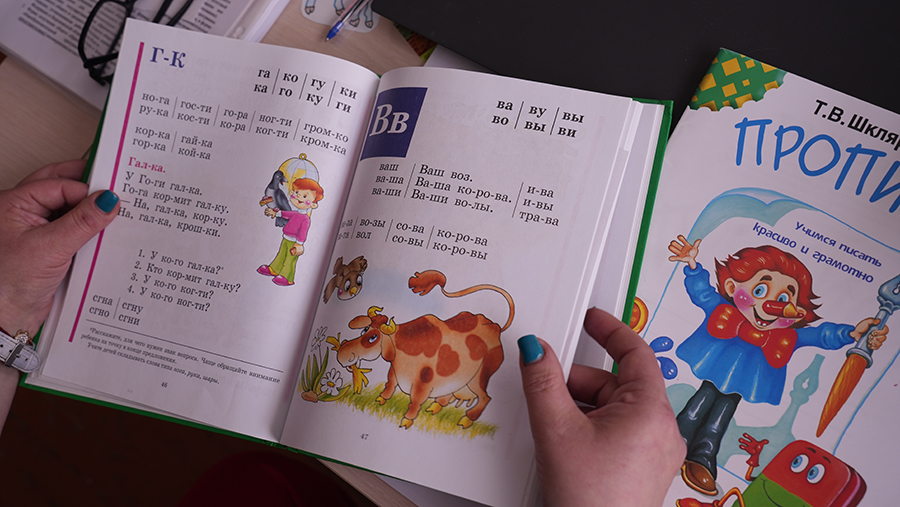
Lyudmila Leus has two student daughters in Rtishchevo. She says that she really misses her family, the Volga, for the first time she has gone so far and for so long. He's going to his homeland in June. And then he plans to go with his daughters to the Sea of Azov, which is just around the corner from Starobeshevo.
On the other side of the country
The village of Kamyshevatoe is the Azov Sea region. Military operations bypassed this settlement. But during the battle for Mariupol, many fled to the surrounding villages, including Kamyshevatoe, and stayed there. The local school is small, with 60 children. The teacher of Russian language and literature here is Tatiana Vladimirovna Naumochkina. She came from the Far East, from the Khabarovsk Territory.
— Why did you decide to take such a radical step, to move from one end of the country to the other? First, everything that has been happening in Donbass since 2014 has been painful for me," the woman says. — And it made me proud of these people. So many years of standing your ground! And withstand the trials…
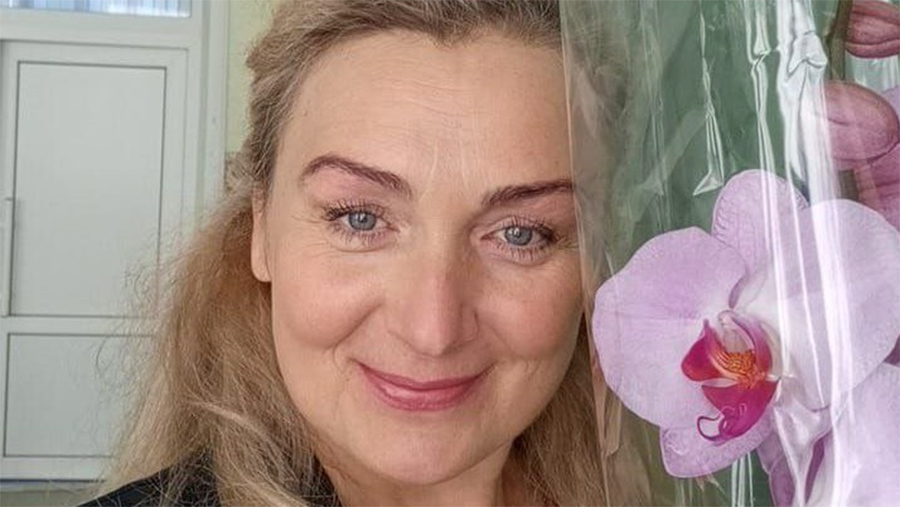
The second reason is that Tatiana's husband signed a contract in early 2024 and went to the free zone. He fought in the Zaporozhye area. Hence the choice of its geography — Kamyshevatoe is as close as possible to the border with the Zaporozhye region. In December last year, however, it became known that her husband was missing. There has been no news about him since then.…
By first education, Tatiana Vladimirovna is a theater director, she taught at a children's studio for several years. After graduating from a pedagogical university, she was attracted to teaching since childhood, even in high school she was an activist, pulling up laggards. For many years she worked at a school in the village of Solnechny, which is not far from Komsomolsk-on-Amur.
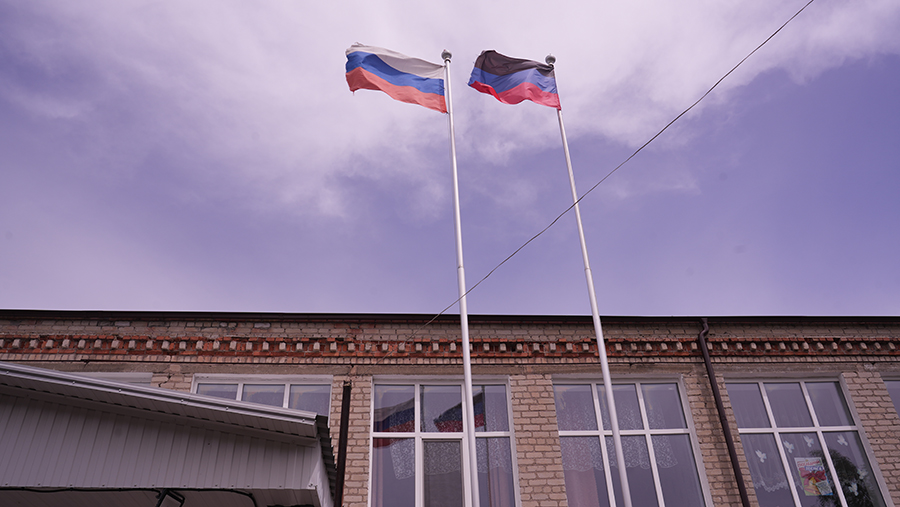
— In Kamyshevatyi, I teach Russian from 5th to 10th grades and literature separately in two classes, — says Tatiana Vladimirovna. — Of course, there is a mess in the minds of schoolchildren — yesterday they studied one thing, today they studied something completely different. Russian Russian language and culture My task is to soften this transition and instill in them a love for the Russian language and Russian culture.
According to my interlocutor, she enjoys the sea and the warmth in her new place. He is preparing to enter the master's program at Lomonosov Moscow State University to improve his qualifications. She is also waiting for the replenishment of the staff of zemstvo teachers in the DPR — some of her friends have already applied for the current 2025 year.
I would like to add that after talking closely with teachers and learning their stories, you realize that the ideological impulse inevitably gives way to routine and ordinary workdays, and you need to be prepared for this. And one more thing: the period of 5 years (acceptable in other regions of Russia) for new territories is probably unreasonably long — they are going through too difficult a period. Obviously, three years of teaching, or even one, would be an equally important contribution to the development of these lands and the support of their inhabitants.
Переведено сервисом «Яндекс Переводчик»

